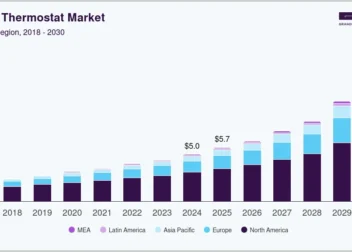How do black holes form? A simple look at these mysterious objects in space
Imagine a place in the universe where gravity is so powerful that not even light can escape its grip. Sounds like something straight out of a sci-fi movie, right? Welcome to the enigmatic world of black holes—cosmic enigmas that have fascinated scientists, storytellers, and stargazers for decades. These invisible giants are more than just space mysteries; they’re key players in the grand tapestry of the cosmos. But how do black holes form, and what makes them so intriguing? In this simple astronomy guide, we’ll embark on a fun, easy-to-follow journey through the birth of black holes, breaking down the science for everyone from curious kids to budding astrophysicists. Buckle up, and let’s dive into the cosmic deep end!

What Exactly Is a Black Hole?
Before we unravel how black holes form, let’s get a handle on what they are. A black hole is a region in space where gravity is so intense that nothing—not even light—can escape. Think of it like a cosmic vacuum cleaner that swallows everything in its path. But here’s the kicker: black holes aren’t “holes” at all. They’re incredibly dense objects, often formed from the remnants of massive stars.
Fun fact: If you compressed Earth to the size of a marble, it could theoretically become a black hole! That’s how mind-bogglingly dense they are. Black holes come in different sizes, from stellar-mass black holes (a few times the mass of our Sun) to supermassive black holes (millions or billions of times the Sun’s mass) lurking at the hearts of galaxies like our Milky Way. Now, let’s explore the black hole facts behind their creation.
The Stellar Recipe: Cooking Up a Black Hole
The most common way black holes form is through the dramatic death of a massive star—a process that’s equal parts destruction and creation. Here’s how it unfolds:
Step 1: A Star’s Life in the Fast Lane
Stars are born in clouds of gas and dust, igniting through nuclear fusion, where hydrogen atoms fuse to form helium, releasing energy that makes them shine. Massive stars (at least eight times the mass of our Sun) live fast and die young, burning through their fuel in just a few million years. Compare that to our Sun, which will chug along for about 10 billion years!
Step 2: The Big Collapse
When a massive star runs out of fuel, it can no longer sustain the outward pressure from fusion. Gravity takes over, causing the star’s core to collapse in a fraction of a second. This is the stellar collapse, and it’s like the universe hitting the reset button. The core implodes, becoming incredibly dense, while the outer layers are blasted away in a spectacular explosion called a supernova.
Step 3: The Birth of a Black Hole
If the core’s remnant is massive enough (typically 2.5–3 times the Sun’s mass), it keeps collapsing under its own gravity, shrinking to a point with no volume but infinite density—a singularity. Surrounding this singularity is the event horizon, the invisible boundary beyond which nothing can escape. Voilà! A stellar-mass black hole is born.
Hypothetical Scenario: Picture a star 20 times the mass of our Sun. After millions of years, it goes supernova, lighting up the cosmos. Its core collapses, and within seconds, a black hole forms, silently lurking where a brilliant star once shone. Cool, right?
Other Paths to Black Hole Greatness
While stellar collapse is the most common way black holes form, it’s not the only path. The universe is full of surprises, and black holes explained in other contexts reveal just how diverse these objects can be.
Supermassive Black Holes: The Galactic Giants
At the center of nearly every galaxy lies a supermassive black hole, like Sagittarius A* in the Milky Way, which is about 4 million times the Sun’s mass. But how do these behemoths form? Scientists aren’t entirely sure, but one theory suggests they grow from smaller black holes merging over billions of years. Another idea is that they form directly from massive gas clouds collapsing in the early universe. These cosmic titans are key to understanding black holes and their role in galaxy formation.
Primordial Black Holes: The Cosmic Underdogs
Then there are primordial black holes, hypothetical mini-black holes formed in the chaotic aftermath of the Big Bang. These could be as small as a grain of sand but still pack a gravitational punch. While we haven’t confirmed their existence, they’re a hot topic in astrophysics basics and could unlock secrets about the early universe.

Why Black Holes Are So Fascinating
Black holes aren’t just about gravity and destruction—they’re cosmic laboratories for testing the laws of physics. Here’s why they captivate everyone from space science beginners to seasoned astronomers:
• Time Warps: Near a black hole, time slows down due to intense gravity, a phenomenon predicted by Einstein’s theory of relativity. If you orbited a black hole (and somehow survived), you’d age slower than your friends back on Earth. Mind blown!
• Invisible Detectives: Since black holes are invisible, scientists detect them by observing their effects, like the way they bend light (gravitational lensing) or the high-energy jets from matter spiraling into them. In 2019, the Event Horizon Telescope captured the first-ever image of a black hole’s shadow—a milestone in space mysteries.
• Cosmic Recycling: Black holes influence star formation and galaxy evolution by recycling matter and energy. They’re not just destroyers; they’re cosmic architects.
Statistic: According to NASA, there could be tens of millions of stellar-mass black holes in the Milky Way alone, quietly shaping our galaxy’s story.
Busting Black Hole Myths
Let’s clear up some misconceptions to make black holes explained even clearer:
• Myth: Black holes suck everything in like a vacuum cleaner.
Truth: Black holes only pull in objects that get too close to their event horizon. If the Sun turned into a black hole (don’t worry, it won’t), Earth would keep orbiting as usual.
• Myth: Black holes are rare.
Truth: They’re surprisingly common, with millions scattered across our galaxy and beyond.
Conclusion: The Cosmic Call to Explore
From the fiery death of massive stars to the mysterious origins of supermassive black holes, the birth of black holes is a testament to the universe’s wild creativity. These space mysteries challenge our understanding of physics, spark our imagination, and remind us how much there is to discover. Whether you’re a space science beginner, a homeschooling parent, or an astronomy enthusiast, the story of how black holes form is an invitation to look up and wonder.
So, what’s next? Grab a telescope, dive into a book on astrophysics basics, or share this simple astronomy guide with a curious friend. The universe is calling—will you answer? Let’s keep exploring the black hole facts and beyond, because in the vastness of space, every question leads to a new adventure.



